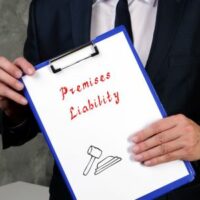Misconceptions About Florida Premises Liability

The legal concept of premises liability holds that if someone is injured in a place other than their home, the owner of the property (or the business on the property) may be liable for the harm that person suffered. However, this concept is not nearly as simple as it might seem. The law recognizes different categories of people and reasons for being present on someone else’s property, and only some of the reasons are compensable. It can be easy to misunderstand or acquire misinformation on the topic, which can cause problems if you are ever in a position to make a claim under premises liability.
Age & Category Matter
One of the most common misconceptions the average person may have about premises liability cases is that they are all handled in the same way, regardless of whether the visitor is a family friend, a trespasser, an adult or a child. In reality, Florida’s law recognizes three different types of adult visitors – invitee (which can be business or public in nature), licensee, and trespasser – and mandates different minimum standards of care that have to be exercised for each category. For example, one must simply refrain from intentionally injuring an adult trespasser, but for invitees, one must also attempt to make their property safe, and warn them about any potential dangers that could not be fixed.
In addition, there are different rules for adult trespassers and trespassers who are young children. If an adult trespasser is injured on a person’s land, the owner usually will not be liable; however, if the trespasser is a young child, the landowner may be held liable if they took no steps to correct or potentially warn of danger. Young children are incapable of assessing a potential threat, so a higher standard of care is required from the landowner, who can make that assessment.
Slip-and-Fall Accidents Are Different
One other misunderstanding often seen in Florida personal injury law is in dealing with slip-and-fall accidents, which are one of the most common types of accidents in premises liability law. Slip-and-falls are one of the leading causes of workers’ compensation claims, simply because it is so easy to experience one. Falls occur on any number of surfaces, in every conceivable place, which is one of the reasons that in recent years, Florida’s legislature made a change in the law that effectively shields businesses from liability in certain specific situations.
The relevant statute holds that if someone slips and falls on a “transitory foreign substance” in a “business establishment,” it is up to the injured person to establish that the business had actual or constructive knowledge of the substance and its position. In other words, if you slip on some water on a supermarket floor, you must establish that the store either knew or should have known that the water was there, and should have taken action to fix it. While this may be possible for some, the majority of injured people will not have been in the establishment for long enough to be able to make this kind of showing.
Contact A Tampa Premises Liability Attorney
Premises liability can be a complex area of law, and if you have been injured on someone else’s land, it is a good idea to consult an experienced Tampa premises liability attorney to get any questions you may have answered about the process. The attorneys from the Rinaldo Law Group can offer compassionate and knowledgeable representation at what can be a time of great upheaval in your life. Contact our offices today for a free consultation.
Resource:
courtlistener.com/opinion/1885704/bovis-v-7-eleven-inc/












